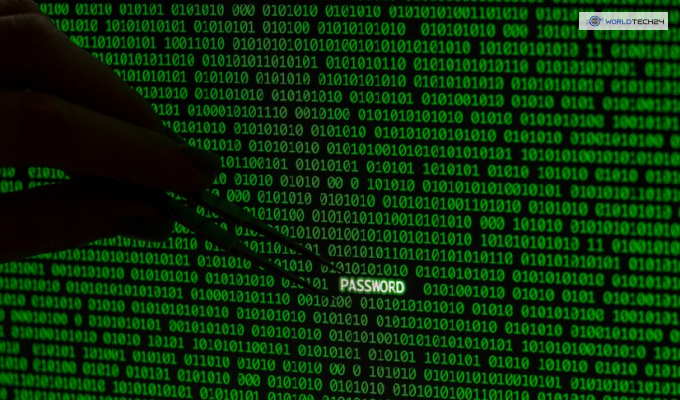In today’s digital age, websites serve as the storefronts of countless businesses and organizations worldwide. However, with the increasing reliance on the internet, the threat of website hacking has become a significant concern. Website hacking refers to unauthorized access, manipulation, or exploitation of a website’s functionalities and data.
The motivations behind hacking can range from financial gain and data theft to political activism and sheer malicious intent. In this comprehensive article, we delve into the intricate world of website hacking, exploring various methods employed by hackers. The implications of such attacks, and crucial defense strategies to safeguard against them.
Understanding Website Hacking

Website hacking encompasses a wide array of techniques and approaches, each targeting different vulnerabilities within a website’s infrastructure. Below are some common methods utilized by hackers:
SQL Injection (SQLi)
SQL injection is one of the most prevalent and damaging techniques employed by hackers. It involves exploiting vulnerabilities in a website’s SQL database to execute malicious SQL queries. Through SQL injection, attackers can gain unauthorized access to sensitive information, modify database contents, and even take control of the entire website.
Cross-Site Scripting (XSS)
XSS attacks involve injecting malicious scripts into web pages viewed by other users. These scripts can then execute arbitrary code in the context of the victim’s browser. L leading to various consequences such as session hijacking, data theft, and website defacement.
Cross-Site Request Forgery (CSRF)
CSRF attacks exploit the trust a website has in a user’s browser by tricking them into executing malicious actions without their consent. For instance, an attacker could craft a malicious link or form that, when clicked or submitted by a logged-in user, performs unauthorized actions on behalf of the user, such as changing account settings or making financial transactions.
Brute Force Attacks
Brute force attacks involve systematically guessing passwords or authentication credentials until the correct combination is found. Hackers utilize automated tools to iterate through millions of possible combinations rapidly, exploiting weak or default credentials to gain unauthorized access to a website’s backend systems.
Distributed Denial of Service (DDoS)
DDoS attacks aim to disrupt the normal functioning of a website by overwhelming it with an excessive amount of traffic. By flooding the target server with requests from multiple sources, DDoS attacks render the website inaccessible to legitimate users, causing downtime and financial losses for the affected organization.
Remote Code Execution (RCE)
RCE exploits vulnerabilities in a website’s code or server configuration to execute arbitrary commands remotely. Attackers can leverage RCE vulnerabilities to upload and execute malicious scripts, install backdoors, or even take complete control of the underlying server infrastructure.
Implications of Website Hacking

The ramifications of website hacking can be severe and far-reaching, affecting not only the targeted organization but also its customers, partners, and stakeholders. Some of the significant implications include:
Data Breaches
Hacked websites often lead to data breaches, wherein sensitive information such as personal details, financial records, and login credentials is compromised. This can result in identity theft, fraud, and reputational damage for the affected individuals and organizations.
Financial Losses
Website hacking can have significant financial repercussions, including direct costs associated with remediation efforts, legal expenses, and regulatory fines. Moreover, businesses may suffer indirect losses due to downtime, loss of customers, and damage to brand reputation.
Legal and Regulatory Consequences
Organizations that fail to adequately protect their websites against hacking may face legal liability and regulatory penalties. Depending on the nature of the breach and applicable laws, companies may be held accountable for negligence, violation of privacy regulations, and failure to safeguard customer data.
Reputational Damage
A hacked website can severely tarnish an organization’s reputation and erode trust among its stakeholders. Customers may lose confidence in the company’s ability to protect their data, leading to decreased sales, negative publicity, and long-term damage to brand equity.
Disruption of Services
DDoS attacks and other forms of website hacking can disrupt essential services and operations, causing inconvenience to users and disrupting business continuity. In the case of e-commerce websites, downtime resulting from hacking incidents can lead to lost sales opportunities and damage to customer relationships.
Defense Strategies Against Website Hacking

Protecting against website hacking requires a multi-faceted approach that addresses both technical vulnerabilities and human factors. Below are some essential defense strategies that organizations can implement to mitigate the risk of website hacking:
Regular Security Audits and Vulnerability Assessments
Conducting comprehensive security audits and vulnerability assessments is essential for identifying and addressing potential weaknesses in a website’s infrastructure. Organizations should regularly scan their websites for known vulnerabilities, such as outdated software, misconfigured servers, and insecure code.
Secure Coding Practices
Implementing secure coding practices is crucial for minimizing the risk of website hacking. Developers should adhere to industry-standard guidelines, such as the OWASP Top 10, to avoid common security pitfalls such as SQL injection, XSS, and CSRF. Additionally, developers should regularly update third-party libraries and dependencies to patch known security vulnerabilities.
Web Application Firewalls (WAFs)
Deploying a web application firewall (WAF) can help protect against various types of attacks, including SQL injection, XSS, and DDoS. WAFs analyze incoming web traffic and block malicious requests before they reach the underlying web application, thereby providing an additional layer of defense against website hacking.
Strong Authentication and Access Controls
Implementing strong authentication mechanisms, such as multi-factor authentication (MFA) and CAPTCHA challenges, can help prevent unauthorized access to sensitive areas of a website. Additionally, organizations should enforce least privilege principles by restricting access to critical systems and data only to authorized users.
Regular Backup and Disaster Recovery Planning
Maintaining regular backups of website data and implementing robust disaster recovery plans are essential for mitigating the impact of website hacking incidents. In the event of a breach or data loss, organizations can restore their website to a previous state using backups and minimize downtime.
Security Awareness Training
Educating employees and users about common security threats and best practices is critical for building a security-conscious culture within an organization. Security awareness training programs should cover topics such as phishing awareness, password hygiene, and safe browsing habits to help users recognize and avoid potential risks.
What Are The Legalities Of Website Hacking?

The legalities surrounding website hacking vary depending on the jurisdiction and the specific actions taken by the hacker. Generally, website hacking is illegal in most countries and can result in severe legal consequences. Here are some key legal aspects to consider:
Computer Fraud and Abuse Act (CFAA) (United States)
In the United States, the Computer Fraud and Abuse Act (CFAA) is the primary federal law governing computer-related crimes, including website hacking. The CFAA prohibits unauthorized access to computer systems and imposes penalties for various offenses, such as accessing a computer without authorization, exceeding authorized access, and causing damage to protected computers. Violations of the CFAA can result in criminal charges, civil lawsuits, and significant fines.
Data Protection Laws
Many countries have enacted data protection laws that govern the collection, use, and safeguarding of personal data. Unauthorized access to websites to obtain or manipulate personal data can violate these laws, leading to legal repercussions. For example, the European Union’s General Data Protection Regulation (GDPR) imposes strict requirements for the protection of personal data and sets forth significant fines for non-compliance.
Intellectual Property Laws
Hacking into a website to steal or infringe upon intellectual property rights, such as copyrighted content or proprietary software, can constitute a violation of intellectual property laws. Intellectual property owners have legal recourse to pursue claims of infringement and seek damages for any harm caused by unauthorized access or use of their intellectual property.
Fraud and Identity Theft
Hacking into websites to engage in fraudulent activities, such as stealing financial information or impersonating individuals for financial gain, can lead to criminal charges related to fraud and identity theft. These offenses carry serious penalties, including imprisonment and fines, to deter such illegal behavior.
Cybercrime Legislation
Many countries have enacted specific cybercrime legislation to address the growing threat of cyber attacks, including website hacking. These laws define various cyber offenses, establish legal frameworks for investigating and prosecuting cybercrime, and prescribe penalties for offenders. Individuals found guilty of website hacking may face imprisonment, fines, and other sanctions under these laws.
Civil Liability
In addition to criminal penalties, hackers may also face civil liability for the damages caused by their actions. Website owners and users affected by hacking incidents can pursue civil lawsuits against hackers to seek compensation for losses, including financial damages, reputational harm, and costs associated with remediation efforts.
It’s essential for individuals and organizations to understand the legal implications of website hacking and to comply with applicable laws and regulations. Employing ethical hacking practices obtaining proper authorization before conducting security testing.
Respecting the rights and privacy of others can help mitigate the risk of legal consequences associated with website hacking. Additionally, seeking legal counsel and adhering to best practices in cybersecurity can provide guidance and assistance in navigating the complex legal landscape surrounding website hacking.
Wrapping Up!
Website hacking poses a significant threat to businesses, organizations, and individuals worldwide, with potentially devastating consequences ranging from data breaches and financial losses to reputational damage and legal liabilities.
By understanding the methods employed by hackers, recognizing the implications of website hacking, and implementing robust defense strategies, organizations can effectively mitigate the risk of cyber attacks and safeguard their online assets.
However, combating website hacking requires ongoing vigilance, proactive risk management, and a commitment to prioritizing cybersecurity in an increasingly interconnected digital landscape.
Read More…
Getting To Grips With The Benefits Of Penetration Testing
Why Do You Need A Proper Security Officer Management System?
Don’t Let You Data Leak. Upgrade Your Mac’s Cybersecurity









